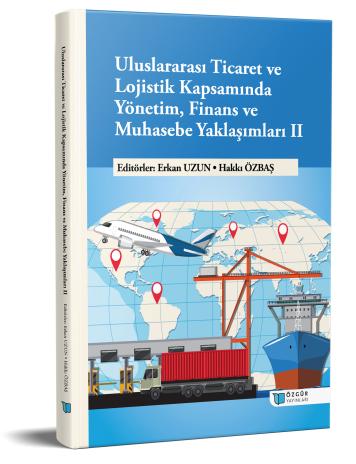
Lojistik Sektöründe Emisyon, Karbonsuzlaşma Stratejisi ve İklim Değişikliği
Şu kitabın bölümü:
Uzun,
E.
&
Özbaş,
H.
(eds.)
2025.
Uluslararası Ticaret ve Lojistik Kapsamında Yönetim, Finans ve Muhasebe Yaklaşımları II.
Özet
Bu çalışmada lojistik sektörünün iklim değişikliği ile mücadelede üstlenebileceği roller kapsamlı şekilde ele alınmaktadır. Yapılan incelemede, mevcut literatürün üç ana konu etrafında yoğunlaştığı gözlemlenmiştir. Bunlardan ilki, lojistik faaliyetlerinin iklim değişikliğine olan etkisidir. Kara yolu taşımacılığından kaynaklanan sera gazı emisyonları, fosil yakıt tüketimi ve altyapı kaynaklı çevresel etkiler bu başlık altında ele alınmaktadır. İkinci konu, sektördeki karbonsuzlaşma stratejileridir. Elektrikli araçların kullanımı, intermodal taşımacılığın yaygınlaştırılması ve dijitalleşme yoluyla verimliliğin artırılması gibi önlemler bu stratejilerin başında gelmektedir. Üçüncü olarak ise lojistik faaliyetlerinde yenilenebilir enerji kullanımının teşviki önem kazanmaktadır. Güneş ve rüzgâr enerjisiyle çalışan depolama ve dağıtım merkezleri, sektörün dönüşümüne katkı sağlayabilecek yenilikçi uygulamalardandır. Yapılan literatür değerlendirmesinde iklim değişikliği bağlamında lojistik sektörünün yalnızca bir emisyon kaynağı olarak değil, aynı zamanda çözümün bir parçası olarak değerlendirilmesi gerektiği vurgulanmaktadır. Sektörün teknolojik altyapısının güçlendirilmesi, çevreci uygulamaların teşvik edilmesi ve sürdürülebilirlik temelli politikaların kurumsallaşması, hem çevresel hem de ekonomik açıdan kazanımlar sunacaktır.

